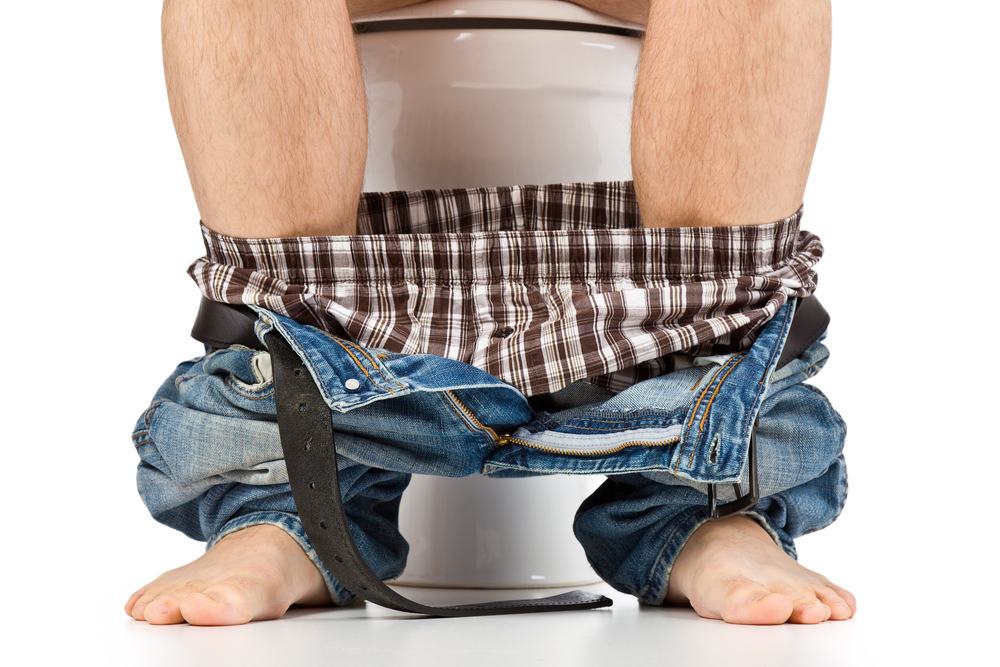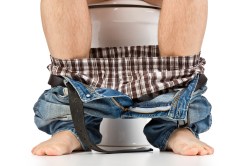Send your question to Umbra!
Q. Dear Umbra,
Are there any truly safe personal pre-moistened bathroom wipes? I was shocked to see some of the chemicals being used in a product that has “Natural Wipes” used in the name. There are some very unnatural ingredients, such as: sodium benzoate, methylisothiazolinone, propylene glycol, and fragrance. I’m possibly overreacting, butt what’s a person supposed to do? This really has me bummed.
Help!
Detroit, Mich.
A. Dearest Help!,
Wow, you sure made a hole lot of puns there.
First of all, never trust the word “natural” on a label. It is basically meaningless. We should always probe claims, read ingredient lists, and do our best to understand what really lies behind that fancy package.
In some cases we are lucky, and someone else has done our homework for us. Someone like the Environmental Working Group, for instance. Turning to EWG’s Skin Deep database, an invaluable resource for researching products, we find the following about the ingredients you cite:
Sodium benzoate ranks a 1 on their scale of 0 to 10 (with 0 being no concern and 10 being major freak-out time). Propylene glycol scores a 3, presenting low-to-moderate concern primarily as a skin irritant and allergen, and methylisothiazolinone scores a 5, posing moderate concern as an allergen and potential neurotoxin. (I should note that a study based on patients at the Mayo Clinic found that methylisothiazolinone did indeed cause rashes and itching in wipe users, and word about wipes causing irritation seems to be spreading.)
And then there’s fragrance, an item that deserves its own little paragraph. It sounds like the most harmless of the bunch, doesn’t it? Yet it rates an 8 from the EWG. As we’ve discussed before, and as EWG reminds us, the term fragrance or parfum “represents an undisclosed mixture of various scent chemicals and ingredients … Fragrance mixes have been associated with allergies, dermatitis, respiratory distress, and potential effects on the reproductive system.”
Do we want this cocktail near our nethers? Not particularly. So what’s a wiper to do? Well, might I suggest that you do not need personal pre-moistened bathroom wipes? I know nothing about your particulars, and am happy to keep it that way, but I do know that we got along perfectly well without these items until recently. I believe these disposable goodies — which hit the market in a big way in 2001 and currently comprise about 3 percent of American toilet paper sales, and more in other countries — are yet another scam foisted on us by the “personal care” industry. To make matters worse, the geniuses behind these products apparently expect us to use toilet paper and wipes in tandem, doubling our impact. Thirdly, wipes are the scourge of sewer-tenders everywhere, because even though they’re touted as flushable, they cause trouble down the line. Some municipalities have even adopted a catchy phrase to help you remember this: “Wipes clog pipes!”
If for some reason you can’t bear to part with your wipes, you might be able to find some middle ground. I offer herewith a laundry list of toilet tips, from least preferable to most:
- Go fragrance-free. If you must use wipes, choose a fragrance-free variety. This holds true for other products too. Fragrance is not our friend. Fragrance is a code word for “chemical-icious.”
- Go green(er). It is possible to find eco-wipes whose ingredient lists won’t send you running to the dictionary. I am not in the business of recommending brands, but I do recommend that you Google “organic wipes” or “eco wipes” and peruse your options. Just keep in mind that the term “biodegradable,” like “natural,” is not all it’s cracked up to be.
- Stick with good old-fashioned TP. Not a bit of methylisothiazolinone in sight. But since we know that manufacturing TP is extremely resource-intensive, we should choose a recycled brand. And perhaps keep a squirt bottle handy for those tougher moments?
- Use a reusable wipe. This will not be a palatable choice for everyone, but it may be the best alternative for the planet and your delicates: Keep a collection of cloth strips near your toilet, toss them in a bin after they’re used, then wash them. Again, a bit of Googling will reveal best practices here, which you can adapt to your own situation (for instance, there’s a bit of a divide over whether cloth wipes are suitable for urine only or for all excretions).
Yes, yes, I’ve left out other green potty options, including bidets, because I don’t believe that undertaking plumbing alterations is a realistic suggestion for most of us. However, as we’ve discussed before, bidets do take the cake.
Dearest Help!, I hope that … helps.
Posteriorly,
Umbra




